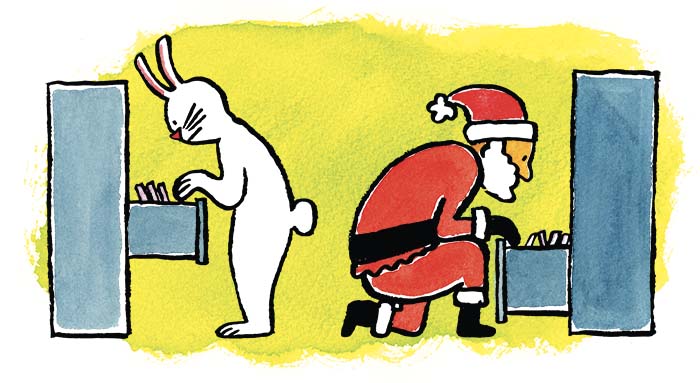
SaaS companies can build an awesomely agile hiring process without having to give up the hands-on approach they need to make sure the right rockstars are walking through their door. Here’s how.
Most of us think we know what a hiring process should look like. The job post, the interview, the contract — the building blocks are all the same, right?
Wrong.
When you’re growing a team in a fast-paced SaaS company, hiring is anything but predictable.
One day you’re posting a position on AngelList, the next you’re taking it down so you can rewrite it to match your founders’ new and improved growth strategy. (Which of course, is subject to change.)
The amount of time, stress and energy that go into hiring for your SaaS company actually makes the corporate world look efficient. But don’t be fooled.
SaaS companies can build an awesomely agile hiring process without having to give up the hands-on approach they need to make sure the right rockstars walk through their door. Here’s how.
Source from your network
The great thing about growing a SaaS company, especially if you’re a startup, is that your founders are probably pretty well-connected people.
You might not get the same level of instant gratification you’d feel after posting a job on LinkedIn, but letting people know you’re always in the market for specific types of talent is way easier, and much more scalable, than relying solely on your online sourcing tools.
Reach out to your peeps with a quick email letting them know what types of candidates you’re constantly on the lookout for and get ready to do some serious hand-shaking. It’s always a good idea to meet a potential candidate, even if that person isn’t in the job market right now.
Align your perks to match your process
In 2012, leadership at Trello faced a true talent dilemma when one of their most talented developers had to relocate for personal reasons. They could either stick to the rules or create a new one to embrace remote working options for everyone. 🎉
Today, roughly 60% of Trello’s 100 employees use the company’s flexible working option. Needless to say, the benefits makeover was a success.
But now that remote work was officially a thing for Trello, they needed their hiring process to reflect that. So they scrapped the standard in-person interview and started using a video call to test an applicant’s ability to work and communicate outside the office, including questions like, “Does your workspace have a door that closes?”
“We spend a lot of time at the end of an interview trying to figure out if someone is set up for success before they start working,” says CEO Michael Pryor. Wise words when you consider that the cost of a bad hire can reach up to 30% of the employee’s first-year earnings.
Establish clear hiring checkpoints
Hotjar is a marketing SaaS company that’s been making headlines for it’s seriously smooth hiring moves.
Their motto is: Hiring right is better than hiring fast. 👌
Hotjar refuses to let hiring urgency overshadow their commitment to culture add, but that doesn’t mean it can’t be an efficient and scalable process. Leadership at Hotjar mapped out several key checkpoints.
- First, every job listed on the Hotjar careers page directs applicants to a long survey with 10–12 detailed questions. Those who can’t be bothered to fill it out are immediately screened out.
- Within the 10–12 questions, there are a few key screening questions the hiring team reviews first as a second culture-fit checkpoint.
- Applicants who make it this far are asked for video submissions, then an interview with the HR team.
- Finally, remaining candidates are asked to complete a paid multi-day task.
The hiring team will then meet up for a group pow wow and make their decision. The whole process can take up to 6–8 weeks, regardless of role.
One thing to keep in mind
It’s always great to lift your head above the water and take a look around at what other SaaS companies are doing to win the game of hiring. But in the wise words of Tomas Tunguz, co-author of Winning with Data: Transform Your Culture, Empower Your People, and Shape the Future, “Ultimately, logic and clear thinking are probably the best tools for setting goals, and motivating an organization properly.”
If you’ve got goals for your hiring strategy, that’s awesome! Just remember to keep your hiring process laser-focused on what and who you need to take your business to the next level.
The last thing you want to do is build an awesomely scalable process on the wrong foundation.
Having the right people is the best feeling, but the hiring process itself can feel like an HR nightmare you never asked for. If you just don’t know where to start, Breezy can help.
From automated pipeline stage actions to SMS candidate nurturing and custom candidate scorecards, you can take the mind-numbing stuff out of the mix and spend more time connecting with the right candidates.





